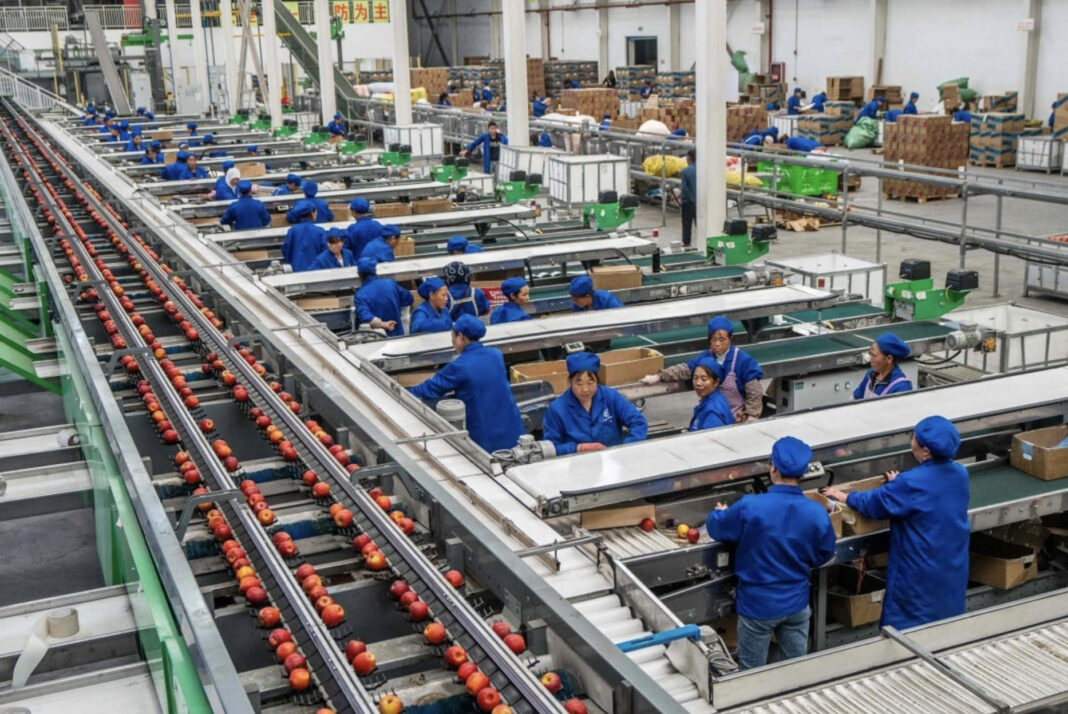China’s factory activity expanded at a slower pace in September, a private-sector survey showed on Sunday, with sluggish external demand weighing on the outlook even as output increased.
The Caixin/S&P Global manufacturing purchasing managers’ index (PMI) fell to 50.6 in September from 51.0 in the previous month, missing analysts’ forecasts of 51.2. The 50 index point mark separates growth from contraction.
The world’s second-largest economy is showing some signs of stabilising after a flurry of modest policy measures, but the outlook is clouded by a property slump, falling exports and high youth unemployment.
The survey comes a day after China released its official PMI, which showed factory activity expanded for the first time in six months in September, adding to the run of indicators suggesting the economy has begun to bottom out.
According to the Caixin PMI, factory output and new orders remained in expansionary territory in September, however external demand remained weak with export orders index contracting for the third month.
“The economic recovery has yet to find a solid footing, with insufficient domestic demand, external uncertainties, and pressure on the job market,” said Wang Zhe, senior economist at Caixin Insight Group.
Factory owners’ confidence for the year ahead hit a 12-month low. Producers of consumer, investment and intermediate goods all cut staff, the survey showed.
Input costs rose at the fastest pace since January, due to rising prices of chemicals, crude oil and industrial metals.
China Evergrande suspends market trading amid questions about chairman’s whereabouts
Chinese policymakers face a daunting task of reviving stalled economic growth with analysts calling for more aggressive steps on top of the piecemeal support of recent months.
“The implementation and effectiveness of the economic stabilisation policies should be the next focus of attention,” Wang said. “More effort may be needed to increase employment and income.”
To support growth, the central bank in September cut the amount of cash that banks must hold as reserves.
“We do not anticipate substantial fiscal or monetary stimulus by Chinese authorities in the coming months,” said S&P Global Ratings in a research note. “While muted policy stimulus means more pain in store for corporates and banks, it also shows China continues to move away from unproductive debt-fuelled growth.”
A separate PMI survey released by Caixin/S&P Global on Sunday showed China’s services activity expanded at the slowest pace this year in September, as demand remained weak despite a string of support measures.
The services index dropped to 50.2 in September from 51.8 in August, the lowest reading since December.
“Services supply and demand grew at a slower pace in September, as market conditions improved less than expected,” Wang said.
Business confidence for the 12-month outlook reached a 10-month low in September.
Chinese investors offloading overseas properties
Services companies also grappled with higher costs for staffing and fuel, the survey showed.
“Both manufacturing and services PMIs tumbled despite remaining in expansionary territory, with the latter falling at a more pronounced rate,” said Wang.
Nomura in a research note also said services activity may have lost momentum, as the release of pent-up summer travel demand faded.
The economic slowdown is polarising government advisers over the best way forward, with advocates of structural reforms now emerging from the shadows in a challenge to others calling for more state spending to shore up faltering growth.
The central bank said on Wednesday it would step up policy adjustments and implement monetary policy in a “precise and forceful” manner to support an economy.

